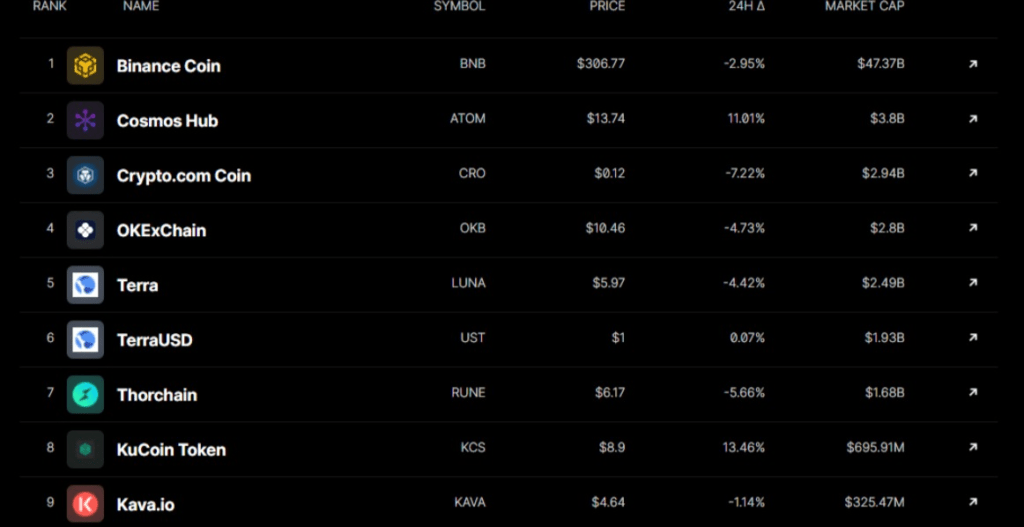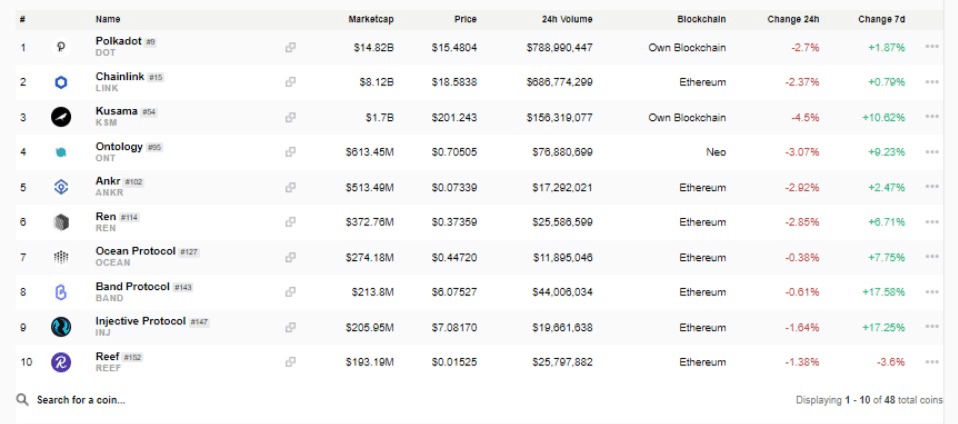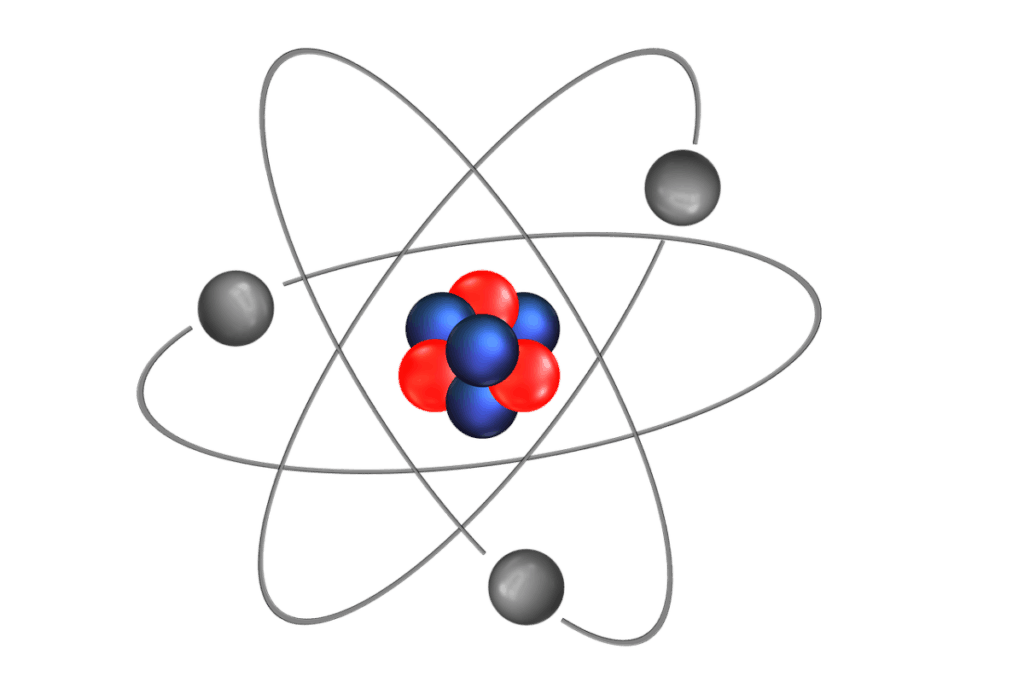You might have heard of the atom token that runs on the Cosmos blockchain and maybe you’re wondering if it’s a good investment.
If you feel more people will adopt crypto, and smart contracts then cosmos is probably a good investment.
Keep reading and I’ll share what I “really” like about Cosmos, how it’s different than Polkadot, and how the project is going.
What is Cosmos?
Cosmos was created by Jae Kwon who is a software developer. You probably don’t know him, but he was the lead programmer for Yelp (the website that reviews restaurants).
Wouldn’t it be great to own a “Yelp” shirt and wear it to a restaurant? I wonder if you would get A+ service?
One of the problems with crypto is there are all these different blockchains that do different things. ALL these different projects don’t work well together.
If you don’t believe me try sending 1 Bitcoin to the Ethereum blockchain! If you did, the Bitcoin would be gone. It’s like living on earth and NO countries want to talk to each other!
What if ALL these different blockchains could work together? This is what Cosmos is attempting to do.
Cosmos wants to connect ALL these different crypto projects together.
This is going to help with speed and help streamline the system. Basically, try to make people’s lives easier! Sounds like a good thing right?
How does Cosmos Work?
Cosmos is a blockchain that has 2 layers. The first layer is called Tendermint BFT (BFT – stands for Byzantine fault tolerance).
BFT is the property of a computer system that allows it to reach consensus even with the failure of some components. The first layer sends messages and is the main structure.
The second layer is for applications or SDK (Software Development Kit) for an individual to create their own blockchains. These blockchains have a lot of freedom, flexibility and govern themselves.
You might be wondering what does building blockchains have to do with Bitcoin, Ethereum, and all the other projects out there?
Isn’t Cosmos supposed to connect all these together?
Cosmos can do this through something called a peg zone.
In a nutshell Cosmos is very flexible!
Lastly, is the token itself called ADAM. You might be wondering what the hell does ADAM even do?
One way ADAM is used is for staking. In fact, Coinbase allows staking the coin on their exchange and you earn 5% APY. 168 million ADAM was initially created in 2017 which raised 17 million dollars for the project.
There is also no supply limit and the number of coins created is based on the amount of ADAM being staked. The second role of this token is it’s used to pay for transaction fees on the Cosmos network.
To be fair Cosmos isn’t the only crypto project that aims to connect all these different blockchains. Another project that also has the same goal is Polkadot.
The “real” question is what is the difference between Cosmos and Polkadot? Also, which is the better project?
Difference Between Cosmos and Polkadot?
The first difference is the name. Maybe I’m biased but Cosmos seems cooler (or nerdy) than Polkadot. Cosmos is also older and it came out on March 9, 2014. Polkadot came out on November 14, 2016.
Next up they both have something called SDK and this stands for Software Development Kit. Cosmos does seem to be more flexible because it enables a blockchain to be more independent.
It also allows a project to have its own validators. A validator is someone who validates transactions and this can be through proof of work or proof of stake.
A validator on Cosmos also doesn’t have to purchase ADAM and lock them up to use the system.
Polkadot it’s more connected to the relay chain and is not as flexible. In order for someone to connect their project to the Polkadot system, they have to purchase and hold the DOT token. The DOT token runs on Polkadot!
When do you compare these 2 systems, which is more attractive for projects and developers? Probably the system that is more flexible where you don’t need to buy DOT and lock it up.
Also If the price of the DOT rises it can be harder for projects with a limited budget to join. They might just go with the Cosmos project.
Lastly, when it comes to how many projects each system has Cosmos has 32 coins on the blockchain. There are some known names on the Cosmos system such as the Binance Coin. I also recognize the Kucoin, which is an exchange I’ve used a few times.

Polkadot has 48 coins to its network at the time of this blog post. Some of them I also recognize such as Chainlink.

You could say that Polkadot has more projects on it. Here is a chart below that helps explain the main differences.
| Cosmos | Polkadot | |
| Founder | Jae Kwon does not have as much name recognition. | Gavin Wood co-created Ethereum and is more recognized! |
| Coins on Network | 32 Coins | 48 Coins |
| Ease of Use | More flexible, more freedom, don’t need to buy native coin to use. | Not as flexible, someone has to buy the native coin and lock it up to use the system. |
Cosmos is the underdog, but anything can happen. I’m happy both of these projects are working to bring blockchains together.
Conclusion
Investing in crypto is risky. The safest bets in crypto are towards the top when it comes to market cap. This means Bitcoin is probably the safest.
If the price of Bitcoin rises (It probably will) it generally pulls other cryptos up with it. If the price of bitcoin falls it usually pulls many other cryptos down with it.
Cosmos is sitting at the 33 spot at the time of this blog post. If you do invest in Cosmos just realize that the investment can go to 0. On the flip side, the price can go as high as the market wants.
The project has gained a lot of support in India. Early in 2021 Cosmos also became the first blockchain to integrate with China’s blockchain service network.
Also, the ADAM token has been fairly flat since it launched. One of the reasons is the development team has been focused on building the infrastructure of the project and NOT on marketing.
Cosmos just needs Elon Musk to tweet about it right?
I hope this blog post on if Cosmos is a good investment was helpful. Bye for now.


